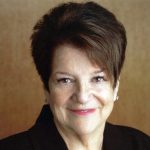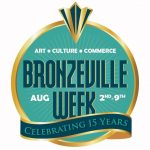The Gourds
Considering that Haymaker! is the Gourds’ 11th release in just 11 years, I’d say that these fine Texans know a thing or two about making hay while the sun is shining. That’s not saying that this recording is merely more product, though … oh no. This outing is much more streamlined stylistically than last year’s explorative, contemplative Noble Creatures, and as such, the live quality of their production is much better suited to these songs. Haymaker! pendulums between straight-up country and The Gourds’ unique brand of alt-country. Of course, their lyrical witticism is prominently on display throughout these 14 songs. “Fossil Contender” is a perfect second track with jangly rhythm guitar, tasteful slide and emotive vocals. “The Way You Can Get” keeps the pace rollicking and offers the disc’s most wistful lyrics, while “Shreveport,” a welcome addition to the truckin’ pantheon, even name checks Geddy Lee. Yessir. Overall, the contrast of Kevin Russell’s twang-dipped vocal delivery and songwriting to Jimmy Smith’s plaintive approach keeps the entire disc entertaining. Their styles have never sounded as cohesive as they do here. The Gourds have certainly created a catalog of worthy music thus far; Haymaker! is perhaps their most refined and therefore their most rewarding too.
Jan 1st, 2009 by Troy ButeroBen Nichols
Ben Nichols, frontman for gritty rebel rockers Lucero, presents his first solo release, Last Pale Light In the West, a self-dubbed “mini-LP.” The mini LP is seven story-songs, pulling their tales from Cormac McCarthy’s Blood Meridian (1985), a bleak, violence-ridden novel, packed full of historical and religious references. Each song Nichols pens in Last Pale Light in the West is built around the novel and its characters; the title track sets the scene as Nichols leads, “Dark clouds gather round me / to the West my soul is bound.” The next introduces the novel’s protagonist, The Kid. In “The Kid,” Nichols sings, “Your mother died night you were born / her name you never knew / look away, look away / nothing to lose / left East Tennessee at fourteen / wandered to the West / look away, look away / born into death.” With Lucero, Nichols has proved himself a natural-born storyteller, tales of bars and brawls narrated by his raspy drawl. This time around, his stories are not just of bars and brawls; those bars and brawls are scenes for something far deeper and more sinister, echoing McCarthy’s unblinking, soulless style. The music itself bucks up and simply tells the tales, not overdrawing a dark mood but lending a stripped down and plainly pretty backdrop, letting the lyrics do all of the novel’s dirty work. Nichols, on acoustic guitar, paired with Rick Steff (Cat Power) on accordion and piano and Todd Beene (Glossary) on pedal steel and electric guitar, rolls ballads out slow and sure, like the rising and setting of the sun in a dusty Western sky, while the musicality of the songs shine up the rough pages within. Although more of a novella in terms of length, Last Pale Light in the West is all-encompassing of its original source, embodying a sense of history and depth and issuing an effect that’s fresh and endlessly intriguing, as the best stories often are.
Jan 1st, 2009 by Erin WolfThis is Fearless
By Amy Elliott, Brian Jacobson, Erin Petersen, Erin Wolf Introduction by Jon Anne Willow, photograph by Erin Landry The idea of leadership has been receiving a lot of play lately, not only in the media but also in the conversations of everyday people. Too often, in the last several years in particular, the term “leadership” is modified by adjectives like “vacuum,” “lack of” and “inadequate.” When we at VITAL began planning these awards in early 2008, it was in response to a general feeling that our community and our nation were in the grips of a collective malaise brought on in part by the sinking sensation that things were spinning out of control and nobody was stepping up to do anything meaningful about the country’s direction. We could relate, and there wasn’t much good news coming from the top. Nevertheless, we could all think of individual citizens who apparently missed the memo to abandon all hope and continued to work within their communities for positive change, keeping their chins up, chests out and heads down but not bowed. In fact, we thought of so many that we realized there must be hundreds more right here in Milwaukee. So instead of picking people we knew in a closed-door staff meeting, we put the vote to the people of our city. And over 3,000 of you weighed in. That’s democracy in action, and we thank each of you sincerely for taking the time to recognize the efforts of all our nominees and award winners. Most of you who read this will be familiar with the larger concept of leadership, though you may not have thought about it much until the recent presidential election brought the idea back into vogue. The term has since gained momentum, first as a campaign slogan and now as a very real expectation of our next president, who takes the helm in such troubling times. Leadership is not about being in charge – some of the best leaders are peers, not bosses – nor is it about being the face connected with a name or cause. Leadership comes from within, and very often lies dormant until required. After all, what sane person grows up wanting to go down with the ship, lead the charge to battle or otherwise commit to exposing themselves to all sorts of hopelessness and unpleasantness on a daily basis? The answer is that nobody sane would think this is a good idea. But as William Shakespeare famously wrote: “Be not afraid of greatness: some are born great, some achieve greatness and some have greatness thrust upon them.” The latter circumstance, I believe, is how most greatness is uncovered. It is human nature to follow, to fit in and to believe that doing no harm is doing enough. It’s how most of us are wired, so if this is you, you’re in good company with most of the human race. But in your heart, don’t you ever yearn to hear a call that you can’t […]
Jan 1st, 2009 by Jon Anne Willow



















